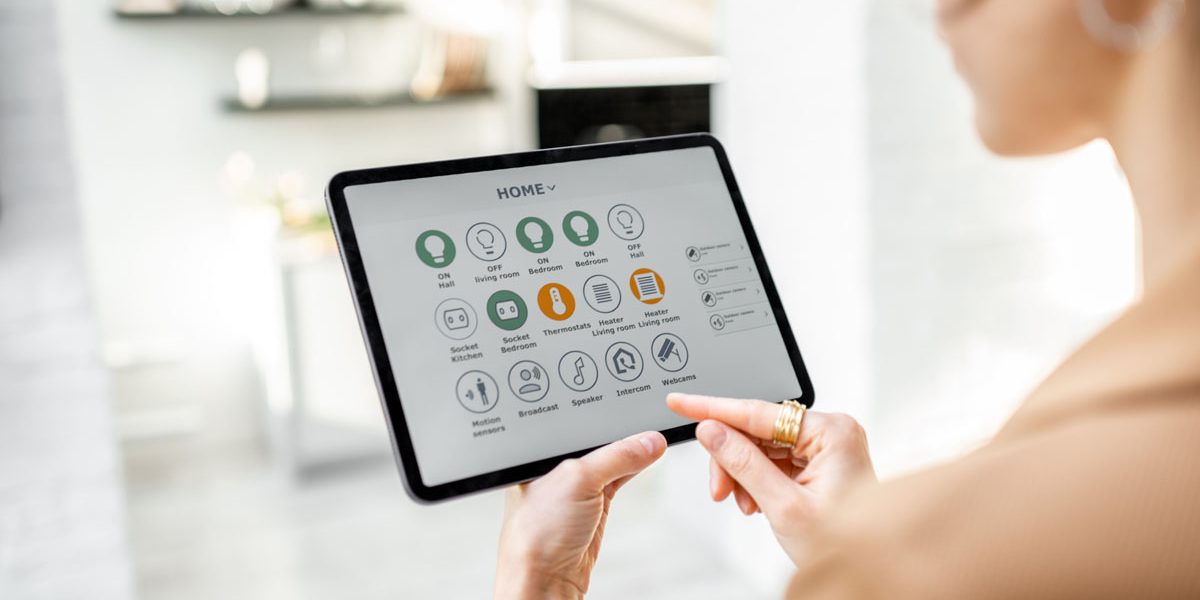What if your refrigerator alerts you when you’re running out of your favorite foods? Or tell you who’s at your door? Through smart home technology, all these situations are possible. If you’re curious in investing in this kind of technology, it’s vital to be wary of the pros and cons. Keep reading to learn more — and to discover if smart home technology is right for you.
Pros of Smart Home Technology
Convenience: Smart homes are unquestionably more convenient than traditional ones. All systems can be integrated and automated to meet your particular needs, whether that’s turning the thermostat up before you come home at night or synching media devices in different rooms.
Energy savings: Smart homes offer energy savings in 2 ways. First, this enables you to program lighting and HVAC controls according to your requirements. Additionally, as reported by SmartGrid.gov, smart appliances can bypass using energy throughout peak demand hours by acknowledging signals from utility companies.
Safety: Smart homes have cutting-edge home security systems with various cameras, motion detectors and other progressive features that can be monitored remotely either by the home owner, a home security firm or the police department, or all three.
Accessibility: Smart homes can provide a great solution for disabled or elderly individuals because they can be equipped with user friendly features like voice-activated systems that can lock outside doors, manage lights and even operate a PC.
Increased home value: A home with smart characteristics can pull in a higher selling price. As reported by the NAR, home buyers are willing to pay more for a home with characteristics like smart security, climate controls, smart appliances and entertainment systems.
Insurance rewards: Some insurance companies might offer a discount for the use of smart devices, so it’s a good idea to check with your agent to find out.
Cons of Smart Home Technology
Initial investment: Compared to traditional home technology, smart home technology necessitates a higher initial investment.
Power surges: As reported by the Insurance Information Institute, you need to guarantee your home is properly protected against power bursts.
Compatibility: There are numerous smart home technology manufacturers, and not all of their products are compatible. Subject to your own tech competence, you might need to hire a professional to create a system in which all devices work flawlessly with one another.
Susceptibility to Internet outages: Should your Internet go down; a lot of smart systems and devices have some type of backup that enables them to keep working. Nevertheless, you might take the risk of losing some of your smart devices’ more advanced features until your connection is restored.
All in all; smart home technology offers considerable advantages while still having some disadvantages. As technology matures and progresses, it’s likely that manufacturers are going to be able to lessen the drawbacks, which makes smart home technology easier and safer to use. And with today’s speed of technological advancements, that time could be sooner instead of later.
Build a Custom Home In Arizona
Contact Hughes Development today to get an estimate for your home building project. Hughes Development builds custom homes in Mesa, Apache Wells, Mountain Whisper and more areas in Arizona.
More Articles About Home Building
- 25 Home Ownership Quotes
- Cost To Build A House: All 50 States
- Buying A House Checklist
- Questions To Ask When Building A Home
- Is It Cheaper To Build Or Buy A House In Arizona?
- 5 Things To Consider When Building A House In Arizona
- What Is A Custom Home?
- Homeowner’s Checklist For Building A House
- Custom Home Building Process
- How Much Does It Cost To Build a House in Arizona?
- How Much Does It Cost To Build A House?


